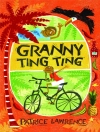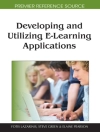It was a dark and stormy night in Santa Barbara. January 19, 2017. The next day’s inauguration drumroll played on the evening news. Huddled around a table were nine Corwin authors and their publisher, who together have devoted their careers to equity in education. They couldn’t change the weather, they couldn’t heal a fractured country, but they did have the power to put their collective wisdom about EL education upon the page to ensure our multilingual learners reach their highest potential.
Proudly, we introduce you now to the fruit of that effort: Breaking Down the Wall: Essential Shifts for English Learners’ Success.
In this first-of-a-kind collaboration, teachers and leaders, whether in small towns or large urban centers, finally have both the research and the practical strategies to take those first steps toward excellence in educating our culturally and linguistically diverse children. It’s a book to be celebrated because it means we can throw away the dark glasses of deficit-based approaches and see children who come to school speaking a different home language for what they really are: learners with tremendous assets.
The authors’ contributions are arranged in nine chapters that become nine tenets for teachers and administrators to use as calls to actions in their own efforts to realize our English learners’ potential:
1. From Deficit-Based to Asset-Based
2. From Compliance to Excellence
3. From Watering Down to Challenging
4. From Isolation to Collaboration
5. From Silence to Conversation
6. From Language to Language, Literacy, and Content
7. From Assessment of Learning to Assessment for and as Learning
8. From Monolingualism to Multilingualism
9. From Nobody Cares to Everyone/Every Community Cares
Table des matières
Foreword by Dan Alpert
Publisher’s Acknowledgments
About the Authors
Together . . .
A Note About Our Terminology
Chapter 1. Debbie Zacarian and Diane Staehr Fenner: From Deficit-Based to Assets-Based
Chapter 2. Shawn Slakk and Margarita Espino Calderón: From Compliance to Excellence
Chapter 3. Tonya Ward Singer and Diane Staehr Fenner: From Watering Down to Challenging
Chapter 4. Maria G. Dove and Andrea Honigsfeld: From Isolation to Collaboration
Chapter 5. Ivannia Soto and Tonya Ward Singer: From Silence to Conversation
Chapter 6. Margarita Espino Calderón and Shawn Slakk: From Language to Language, Literacy, and Content
Chapter 7. Margo Gottlieb and Andrea Honigsfeld: From Assessment of Learning to Assessment for and as Learning
Chapter 8. Ivannia Soto and Margo Gottlieb: From Monolingualism to Multilingualism
Chapter 9. Debbie Zacarian and Maria G. Dove: From Nobody Cares to Everyone/Every Community Cares
Index
A propos de l’auteur
Diane Staehr Fenner, Ph D, is the president of Support Ed (Support Ed.com), a woman-owned small business located in the Washington, DC, metro area that she founded in 2011. Support Ed is dedicated to empowering multilingual learners and their educators. Dr. Staehr Fenner leads her team to provide ML professional development, coaching, technical assistance, and curriculum and assessment support to school districts, states, organizations, and the U.S. Department of Education. Prior to forming Support Ed, Dr. Staehr Fenner was an English language development (ELD) teacher, dual language assessment teacher, and ELD assessment specialist in Fairfax County Public Schools, VA. She speaks German and Spanish and has taught in Berlin, Germany, and Veracruz, Mexico. Dr. Staehr Fenner grew up on a dairy farm in central New York and is a proud first- generation college graduate. She has written eight books on ML education (and counting), including coauthoring Culturally Responsive Teaching for Multilingual Learners: Tools for Equity and authoring Advocating for English Learners: A Guide for Educators. She is a frequent keynote speaker on ML education at conferences across North America. She earned her Ph D in Multilingual/Multicultural Education at George Mason Universityand her MAT in TESOL at the School for International Training. You can connect with her by email at Diane@Support Ed.com or on Twitter at @DStaehr Fenner.












